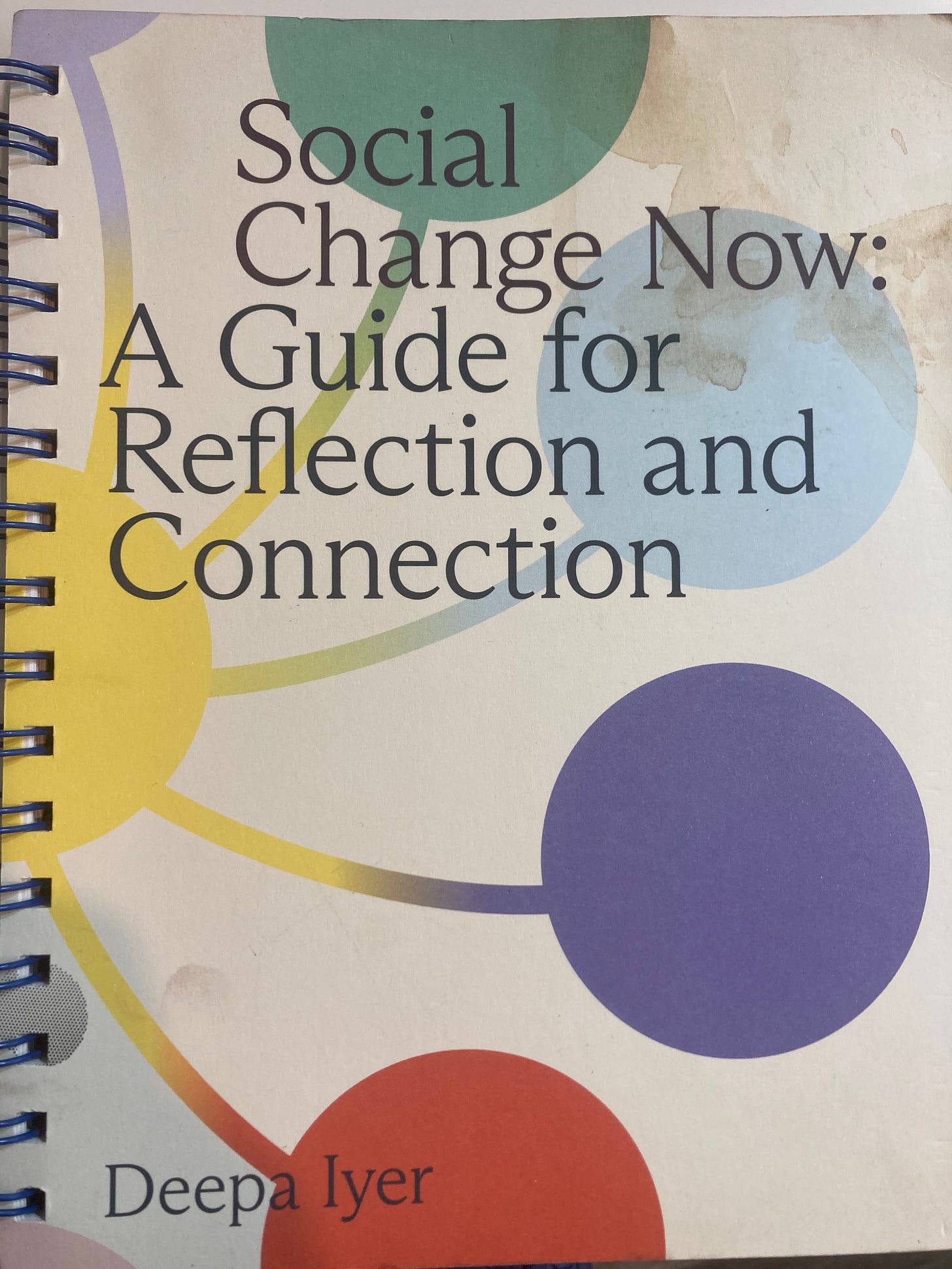What to do, what to do...
I’m really enjoying this book right now, and the way it helps walk people through where they are in their social-change journey, and how to figure out what to do next. It’s sort of geared for organizations, but I find it useful with individuals too—-as social circles are their own kinds of organizations really.
It talks about the various roles—-Frontline responders, visionaries, builders, caregivers, disrupters, healers, story tellers, guides, weavers, experimenters—and how identifying our role/s can help us in staying grounded, understanding ourselves, aligning with our values, and not just acting willy-nilly out of total crisis mode.
I mean, we are in a total crisis. What is going on in our country is totally out of control. And the years and years preceding this moment, where civic engagement has been thwarted through a consolidation of power—from school boards to mass incarceration—and everyone has to work so much just to survive and pay rent and take care of themselves and their own families or close-people, it has created a world where it’s hard to imagine finding time to do anything more.
I have been thinking a lot about the roles Deepa Iyers talks about, but also about the body’s needs. My body needs something to tune out to. I started playing video games a few years ago, which is weird and fine. But also doing data entry fills that same kind of body-need. So I look for organizations or projects that need data entry as something I can do to shut my brain off for a few hours.
And now that I sit all day for work, I need something that involves movement. I need social change work that involves me moving my body. So doing something physical labor oriented, like turning community gardens into more productive, functioning farms, fills that need. Digging, planting, watering, harvesting, building muscles that have begun to weaken with disuse.
I also really loved Ross Gay’s Inciting Joy and how the things he liked about community gardens—the visioning, meetings, potlucks, imagining what could be created—were what he loved about it. The opposite of what I like about it, which is the solitude and quiet. How every project can be different things for different people.
Today I was walking with Etta on the river path by my house—a place that is all Pittsburgh, giant abandon structures of steel mill industry, not yet torn up for the tech-future-nightmare that we’re living in. We were talking about anarchism and socialism and democracy, the need for more vision of where we’re going. And she told me about this really beautiful project One Million Experiments that brings together “snapshots of community-based projects that expand our ideas about what keeps us safe.”
I am loving this.



